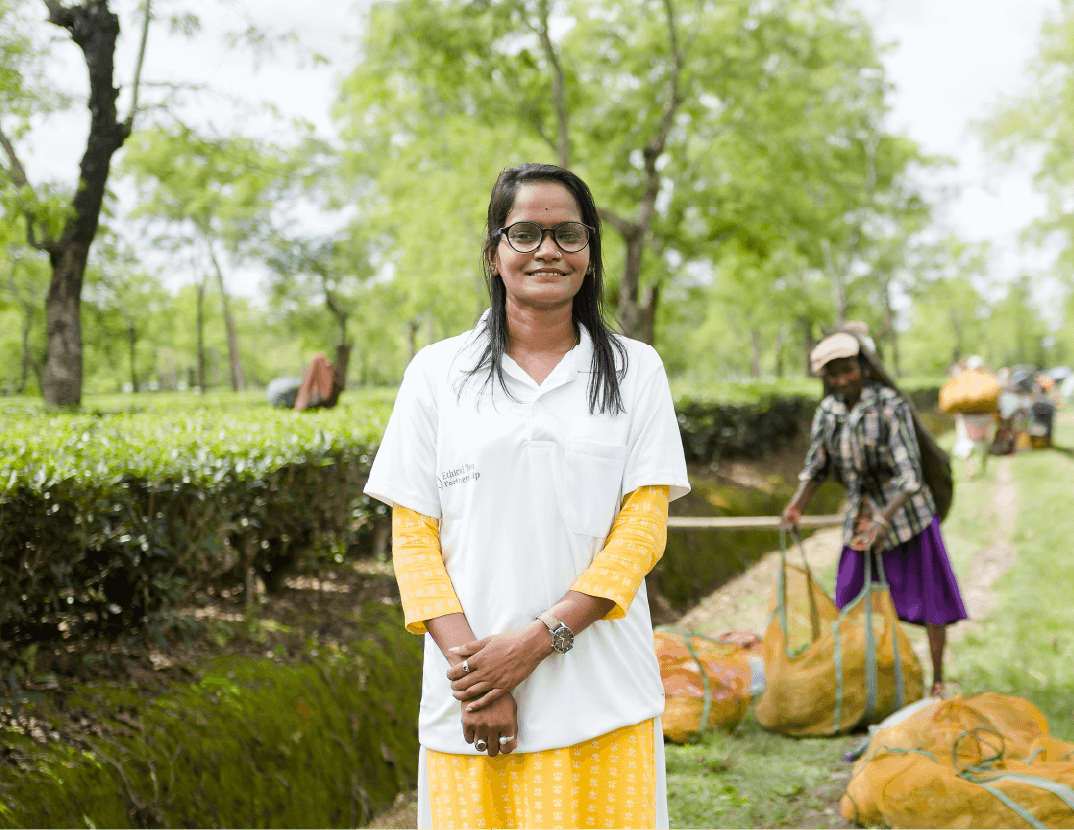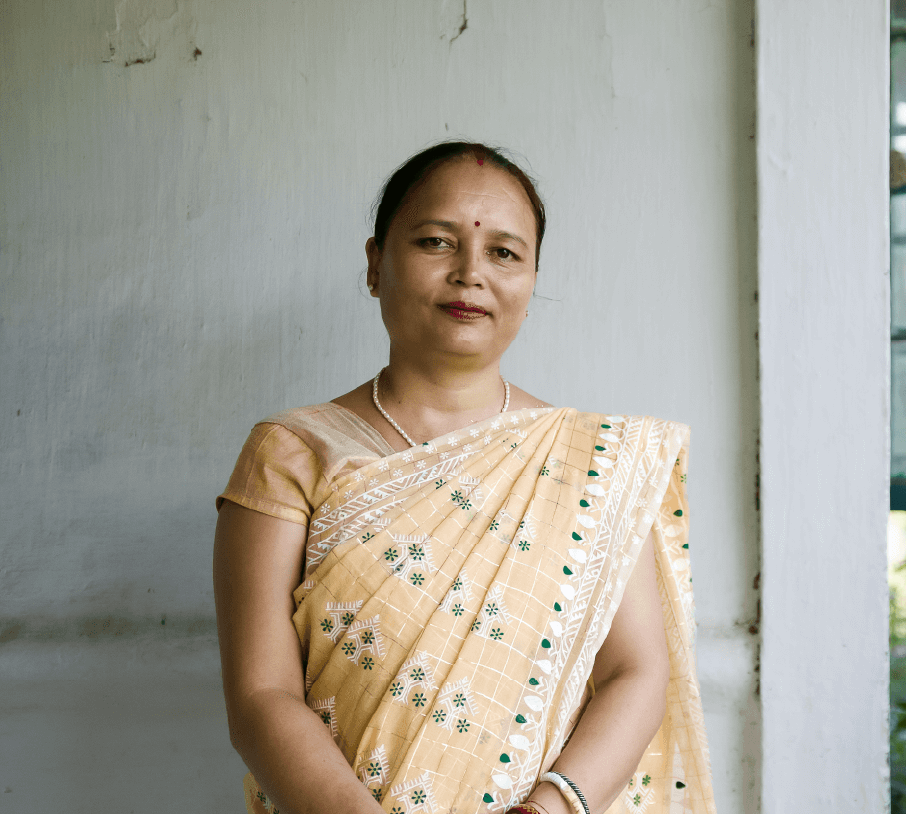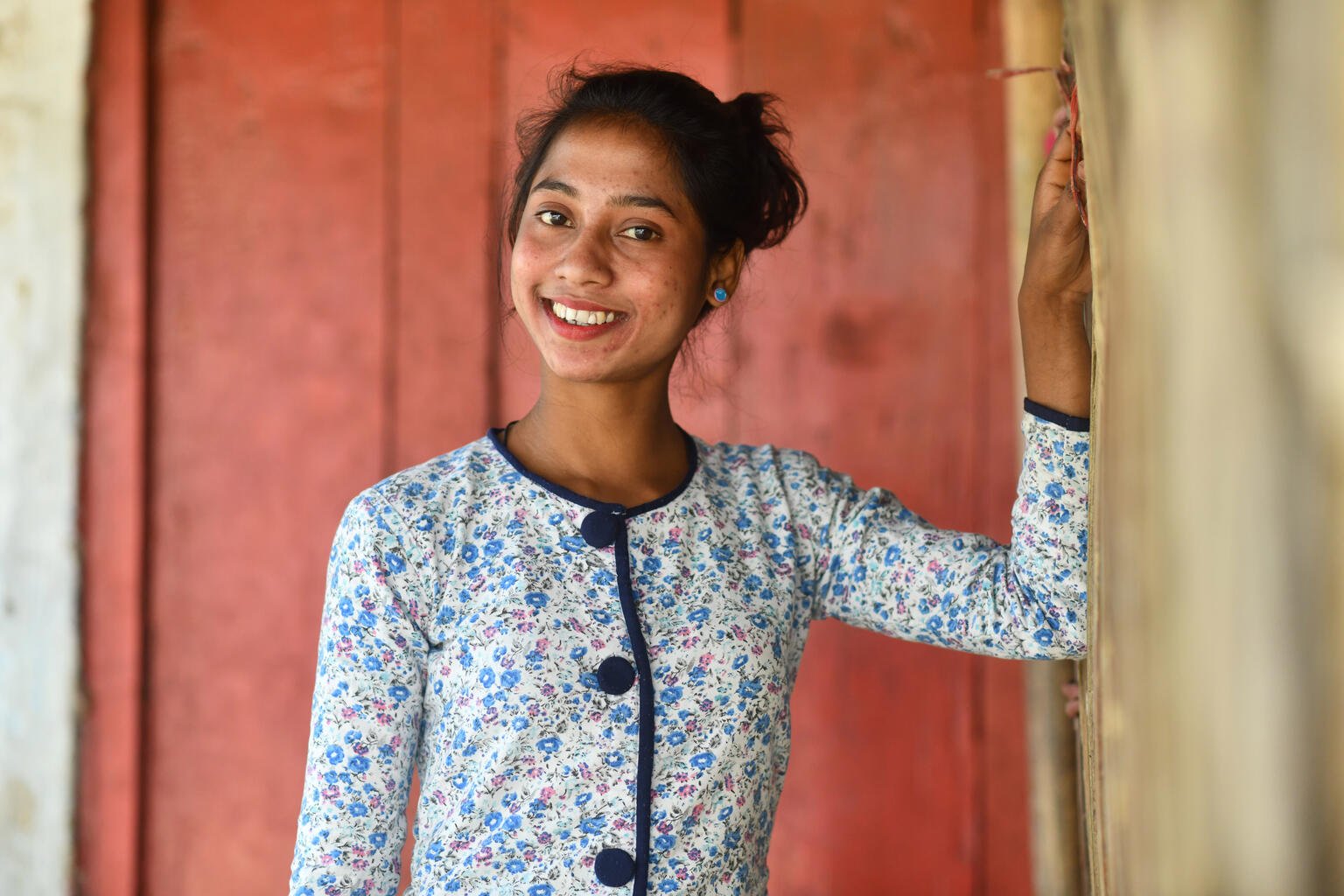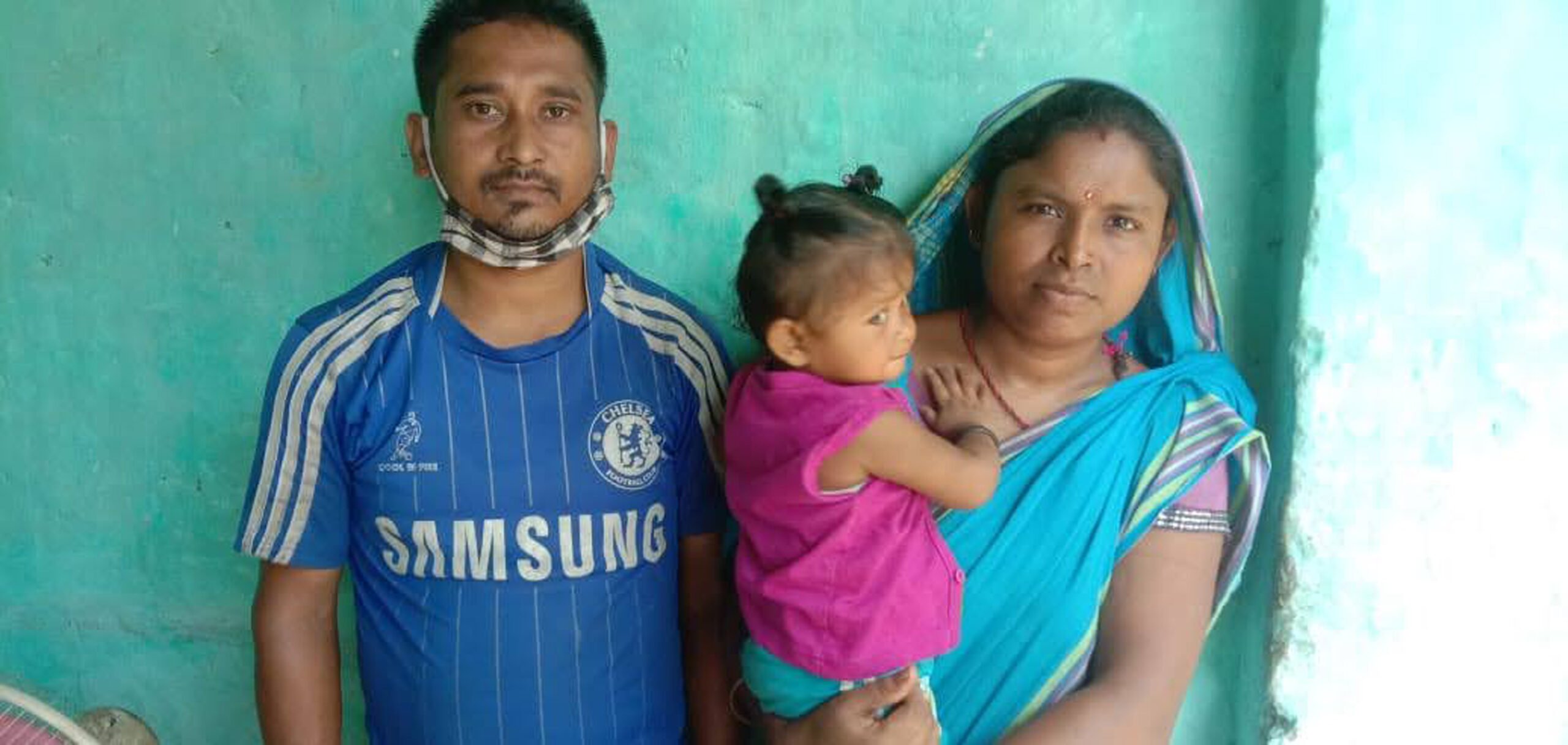Inspiring cooperation
Yet Manjula highlights that it is the community’s sense of ownership that is key to success. “How can we maintain this garden properly, like our own? How will our society progress? We discuss these topics,” she says. “Wherever a problem arises, we must solve it together on the spot.”
“And we solve those problems,” she affirms. “If we want a good environment, or if we want our communities to progress, then we will have to do the necessary work together.”
The CDF meetings are bringing these challenges to light. Some are immediate, some are longstanding: a primary school’s recent closure; the need for an ambulance at the estate hospital; alcoholism in the community. Others, such as the need for local disability support, are being addressed for the first time. However, with each problem raised, it becomes clear how much more aware and empowered the residents of Moran are today than a year ago.
As the programme enters its next phase of capacity building, Manjula remains motivated and enthused by her neighbours’ commitment to the PCEP participatory approach. “Their confidence level is increasing. And they are cooperating,” she says. “They are beautifully cooperating.”



